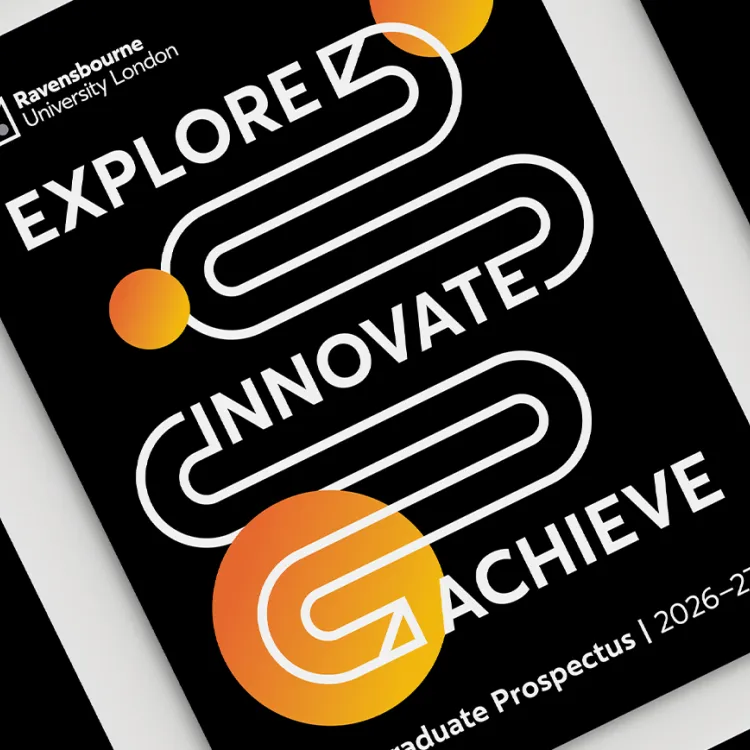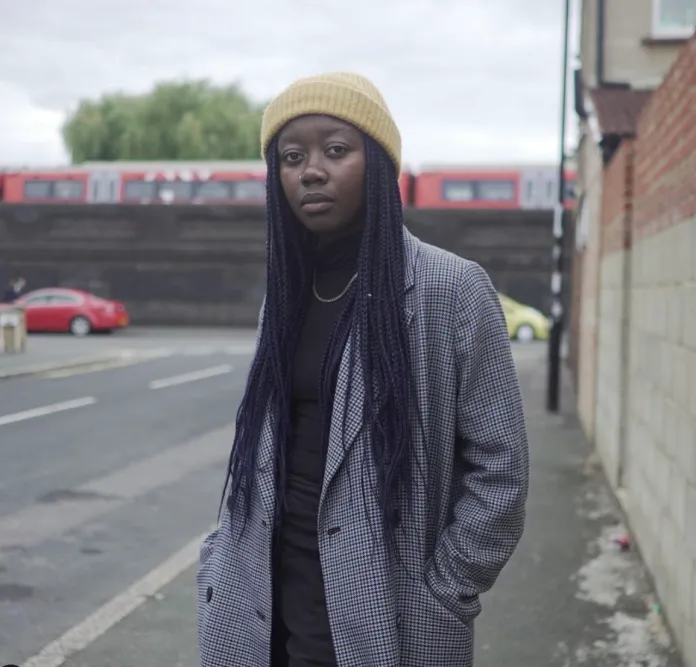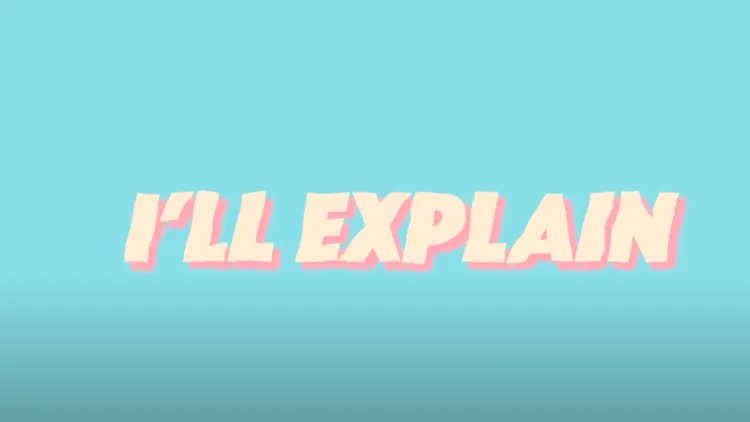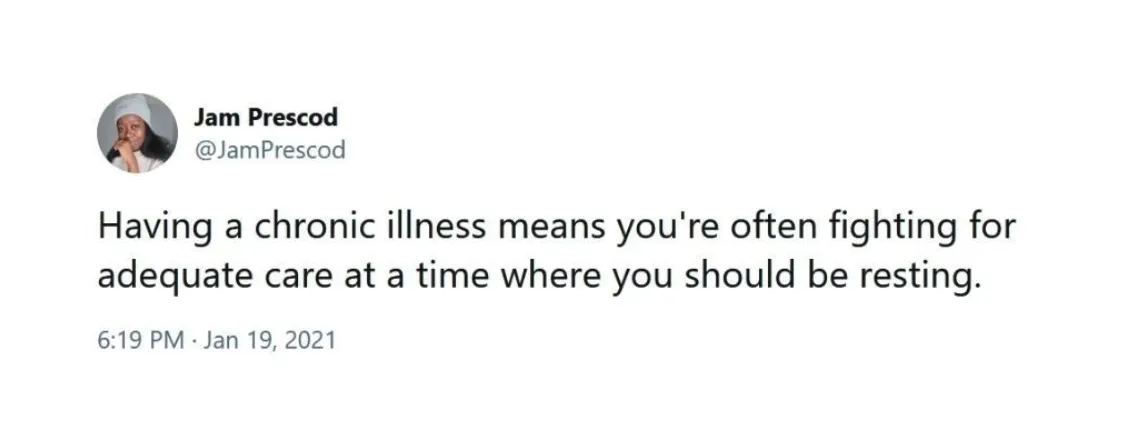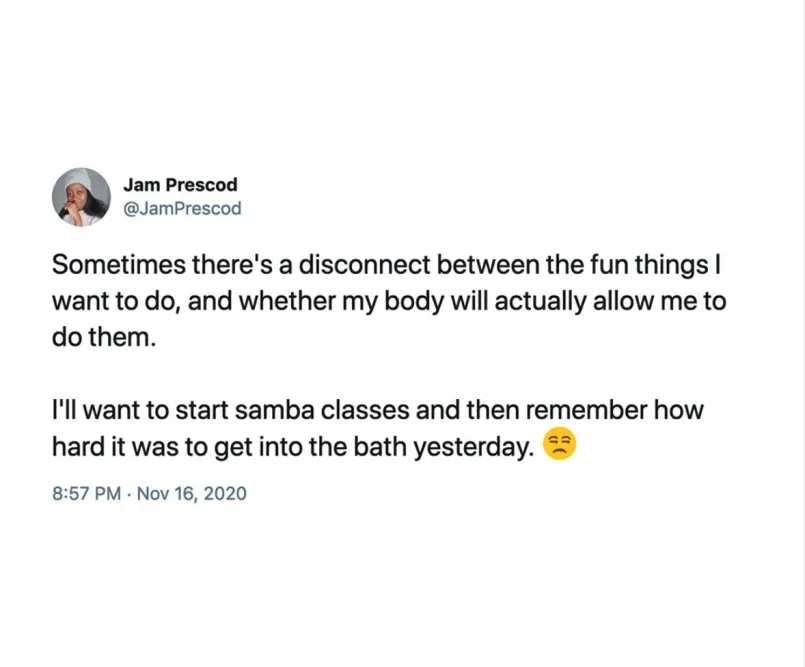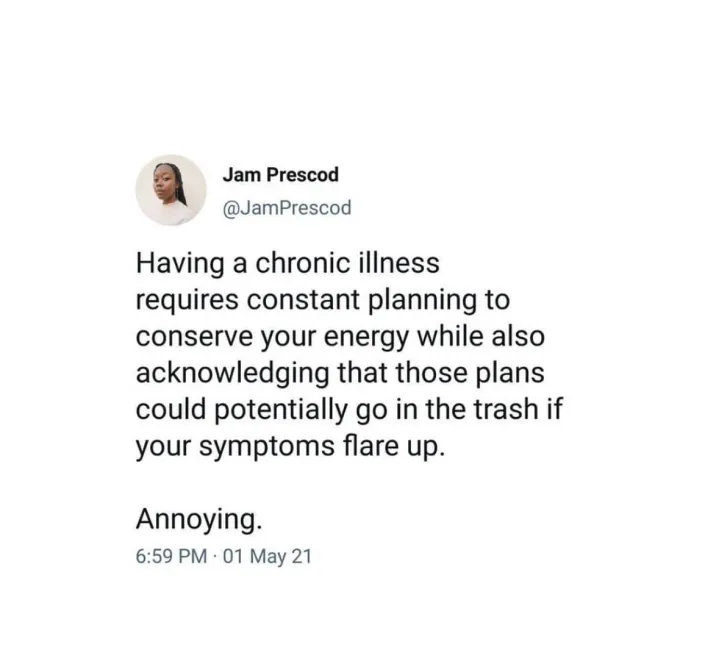Jameisha Prescod is changing the conversation around chronic illness
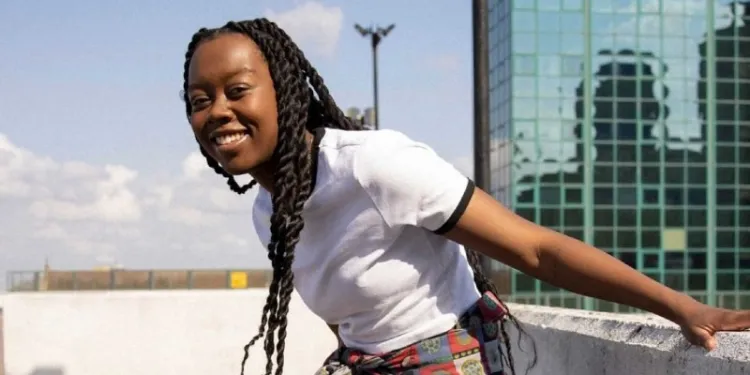
Article by: Gaynor Orvis
Publication date:Jameisha Prescod graduated from the BA (Hons) Digital Film Production course in 2017. Since then she has been on a mission to bring conversations about chronic illness into the mainstream. With over 29k followers on her Instagram page 'You Look Okay to Me' and a fast growing YouTube presence, she has become a beacon of hope and inspiration for others out there.
Jameisha launched her online platform 'You Look Okay to Me' after being awarded a mentorship with SEEDS, Ravensbourne's Self-Employment Entrepreneurship Diversity Scheme. During this time, she was given the support and guidance needed to hone her ideas, build her confidence, and plan for her future.
Jameisha was also involved in Ravensbourne's Incubation+ collective – a community of start-ups and growing businesses working and collaborating together.
She has recently been announced as a winner of the Deutsche Bank Award for Creative Enterprise (DBACE). DBACE is a mentorship programme supporting visionary creative entrepreneurs who are driven by a mission to create and sustain social value through their enterprise.
Our copywriter, Gaynor, caught up with Jameisha to learn more about her growing online platforms, how her experience with SEEDS helped shape her into the person she is today and how she juggles her multiple projects.
hide
Firstly, congratulations on becoming a DBACE winner. Can you tell us a little bit more about this?
Yes of course, so the nomination is for my online platform 'You Look Okay to Me', which is a digital space for people with chronic illness. I make creative content that explores chronic illness and the social themes around that.
I actually applied for the award last year. The award is specifically for creative entrepreneurs and I thought “I’m creative and I want to channel that into a business.” The scheme offers you a mentorship and gives your business a great head start.
I applied last year, and I didn’t get through. But after I did some modelling for them they remembered me from last year and encouraged me to apply again. I’ve developed a lot since last year and my online platform has really taken off, and I think my application this year highlighted that.
I got an email to say that they had shortlisted me. After making the shortlist next was a large pitch round, and after that I got through to the final eight. We have another round of pitches and from there the judges decided I was one of five candidates to be awarded the mentorship. To be honest, I’m just really grateful for the experience and for any help I can get to become established.
On Jameisha's YouTube channel she posts films, explainers, vlogs and podcast episodes that chronic illnesses and how they link to wider culutral themes.
That's amazing – massive congratulations. So was it nerve-wracking pitching to them, or are you quite confident when it comes to pitching?
Pitching is nerve wracking yeah, but I also think I'm decent at pitching so I think I came off well. I’m not going to lie, I was shaking. It was on Zoom, so that made it a little easier. I think the problem isn’t the pitch as you can prepare for that, it’s the questions at the end that is the scary bit.
The area that I’m really looking for more support in is the financial planning side of things, so if I struggled to answer those questions then that’s where I’m looking to develop anyway.
We'll keep my fingers crossed for you. You were also involved with the SEEDS program at Ravensbourne, weren't you – how did you initially hear about it?
Yes I was. I had a friend that graduated before me that told me about it. It sounded like such a great program. She really inspired me to reach out to them.
Sometimes on my course my disability meant that I struggled to do the same things that my peers were doing. So when I heard about SEEDS and how it is designed to support students with disabilities and those from diverse backgrounds setting up their own business, I knew it was a great opportunity to express myself and my unique standpoint.
What were some of the benefits of getting involved with SEEDS?
Firstly, the chance to have another year in the building and to have full access to all the fantastic facilities was a real privilege. To be able to have a bit of a softer graduation, where I had some time to figure out my next steps was really valuable too.
All the SEEDS speakers were fantastic, and they really helped us with the areas of our business we were looking for support in. For me it was support with my pitching skills. When I pitched I was unknowingly quite self-deprecating but with the right support I learnt how to improve this and to big myself up instead.
We heard from speakers from so many industries and it was a great opportunity to collaborate with other participants from different disciplines too.
I was also assigned my own mentor. My mentor, Jonathan Bannister is a business coach and the founder of Make Happy, a company that works with business leaders and companies to tap into their creativity to strengthen their processes. He helped me build a proper business plan. He said, “put it on a canvas, put it on your wall, make it big and move things around.” Where else would you get support like that? It really was an incredible opportunity.
Where are you working now and what does your typical day look like?
So since I graduated, I’ve worked a couple of different jobs in that time. I’m a video journalist primarily, so I make documentaries. At first I was freelancing for a small independent documentary company and then I had an incubation period at Facebook.
After that I got ill for a bit and so I had to take some time off. Then after that I got a job working with BBC News for their BBC Africa team. Basically, I applied for a BBC scheme looking for documentary makers with disabilities and got the position. In the first six months of the role I was working on podcasts and then later moved on to a different department that made short documentaries. That’s the team I’m in now – when the scheme finished I applied for a full-time role and got the position.
In terms of my day-to-day responsibilities, I am a video journalist and YouTube lead. So sometimes I produce videos, sometimes present them and sometimes produce them – so lots of variation. Sometimes the content goes across all our social media platforms and sometimes it gets broadcast on TV stations in Africa.
The other half of my role is managing the YouTube channel for BBC Africa. This involved strategising and also looking at search engine optimisation (SEO). It also involves lots of researching to decide what content to push out.
It sounds like you have a busy work schedule. How do you juggle a full-time job with managing your own online platform?
When I finish my job at the BBC, I usually switch over and start working on 'You Look Okay to Me.' I usually try to produce videos every week, but this has been on the back burner a little at the moment because I am so busy.
Sometimes the videos are long form videos for my YouTube channel, and sometimes they are shorter videos for my Instagram, which is my largest platform. Most of the videos I produce touch on chronic illness and look at different aspects of it. I discuss themes like race and illness, or gender identity and illness. I look at how these themes interact and I also interview other people that have chronic health conditions.
I’ve had to slow down recently because I was working on a couple of commissions and I was burning myself out trying to do everything at once. I have to learn to step back sometimes because the workload gets too much, but I love what I’m doing so that motivates me to keep going.
